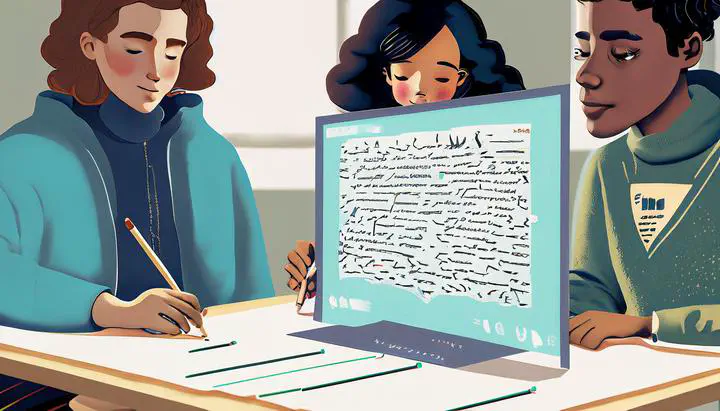AI in Education
 Image created with Adobe Firefly (prompt: artificial intelligence programme assisting students in writing essays)
Image created with Adobe Firefly (prompt: artificial intelligence programme assisting students in writing essays)Recent progress in artificial intelligence presents a unique opportunity for higher education, but also poses challenges. Generative AI systems are increasingly capable of producing text, images, and computer code. Students can use these systems to increase their productivity and level the playing field between e.g. native and non-native speakers, or students good or less good at writing. But students can also use AI systems to undermine the validity of traditional assessment methods. Teachers should adapt the ways they assess students to optimize the strengths of AI. At the same time, data-driven methods in learning analytics, automated review, and personalized questioning can be used by teachers to promote objectivity and learning success, while also introducing risks such as potential bias and lack of transparency.
ECPAI researchers are involved in many different ways to better understand the impact of AI in higher education and are actively engaged in the development of tools and policy frameworks to ensure that this impact is positive. In particular, funded research projects are used to explore the use of chatbots for academic writing, and several researchers are actively involved in the articulation of education policy at the university and beyond.
Funded Projects
- Using Generative AI to Teach Academic Writing, funded by BOOST! and 4TUCEE.
Structural Contributions
- Carlos Zednik is part of the IE&IS task force on AI in education.
- Carlos Zednik, Gunter Bombaerts, and Philip Nickel are members of the TU/e Academy for Learning and Teaching (ALT) Learning Community for AI in Education.
Activities
- Carlos Zednik and Gunter Bombaerts will lead a roundtable on ‘Constructive Alignment in the Age of Generative AI’.
- Matthew Dennis participated in the ‘Human-computer confluence in education’ workshop within the Panel for the Future of Science and Technology at the European Parliament (video recording).
- Vlasta Sikimić co-organizes an hybrid workshop on the responsible use of AI in education.
- Vlasta Sikimić was featured in the Fall 2023 edition of the SEFI Ethics Special Interest Group Newsletter.
Associated Researchers
- Carlos Zednik
- Gunter Bombaerts
- Matthew Dennis
- Philip Nickel
- Vlasta Sikimić

